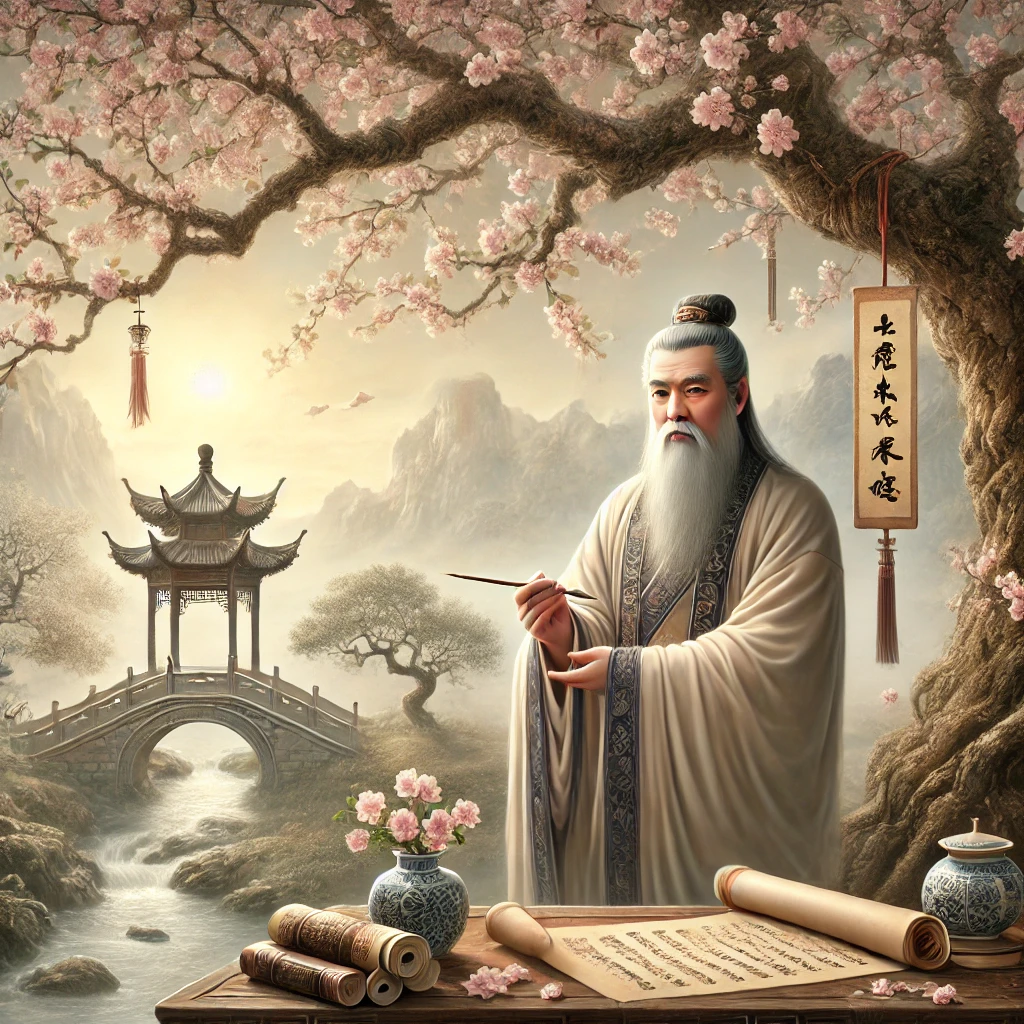Confucius - The Father of Chinese Philosophy
The human being at the centre of everything

Confucius, the philosopher who transformed China with the power of ethics and human relations. His vision of harmony and virtue is a legacy that still shapes Chinese culture and society today -Image generated with AI
Confucius, who lived in the 6th century BC, is one of the greatest thinkers in Chinese history and a key figure in East Asian philosophy. Born in Lu province (present-day Shandong), he lived in a period of political crisis and social disruption, known as the period of Springs and Autumns. In a context of great instability, Confucius distinguished himself by proposing an ethic aimed at social harmony, which saw virtue and learning as the pillars for an orderly and peaceful society.
He did not conceive of man as an isolated individual, but as an integral part of a social fabric in which every relationship contributes to the common good. At the core of Confucian thought are the concepts of Junzi (the man of worth) and Xiaoren (the petty man), figures who embody two opposing approaches to life: the Junzi lives for the collective good, while the Xiaoren focuses only on himself. The supreme virtue for Confucius is Ren, the ‘human quality’ or ‘benevolence’, which manifests itself in love and respect for others. Confucius summed this up in a simple but powerful phrase: ‘Ren is to love one's neighbour’.
Unlike Christian morality, Confucianism does not place a deity at the centre, but rather man and society. Religion does not play a central role; the focus is on human virtues and the construction of a harmonious social order. The social hierarchy, while not questioned, is balanced by the notion that each individual can improve himself and contribute to the common good. A fundamental work of the Confucian corpus is the Shijing or Book of Poetry, a collection of ancient compositions used as an ethical and cultural guide for the ruling class, essential in the formation of Chinese culture and politics.
In modern times, Confucius' thought has seen a return to China, where his philosophy is promoted as an ethical and social foundation, particularly for its emphasis on stability and order. The concept of Junzi, for example, is emphasised to promote responsible and moral leadership.
Csikszentmihalyi, Mark, "Confucius", The Stanford Encyclopedia of Philosophy, Edward N. Zalta & Uri Nodelman, 2024, Consultato il 2 Novembre 2024.
Chin, A.. "Confucius." Encyclopedia Britannica, October 2, 2024.
Sun, Anna. Confucianism as a World Religion: Contested Histories and Contemporary Realities. Princeton, NJ: Princeton University Press, 2013.
Toniatti Francesco - Docente di Storia e Studi Orientali - Master of Arts in International Relations
2025-09-27
Francesco Toniatti
